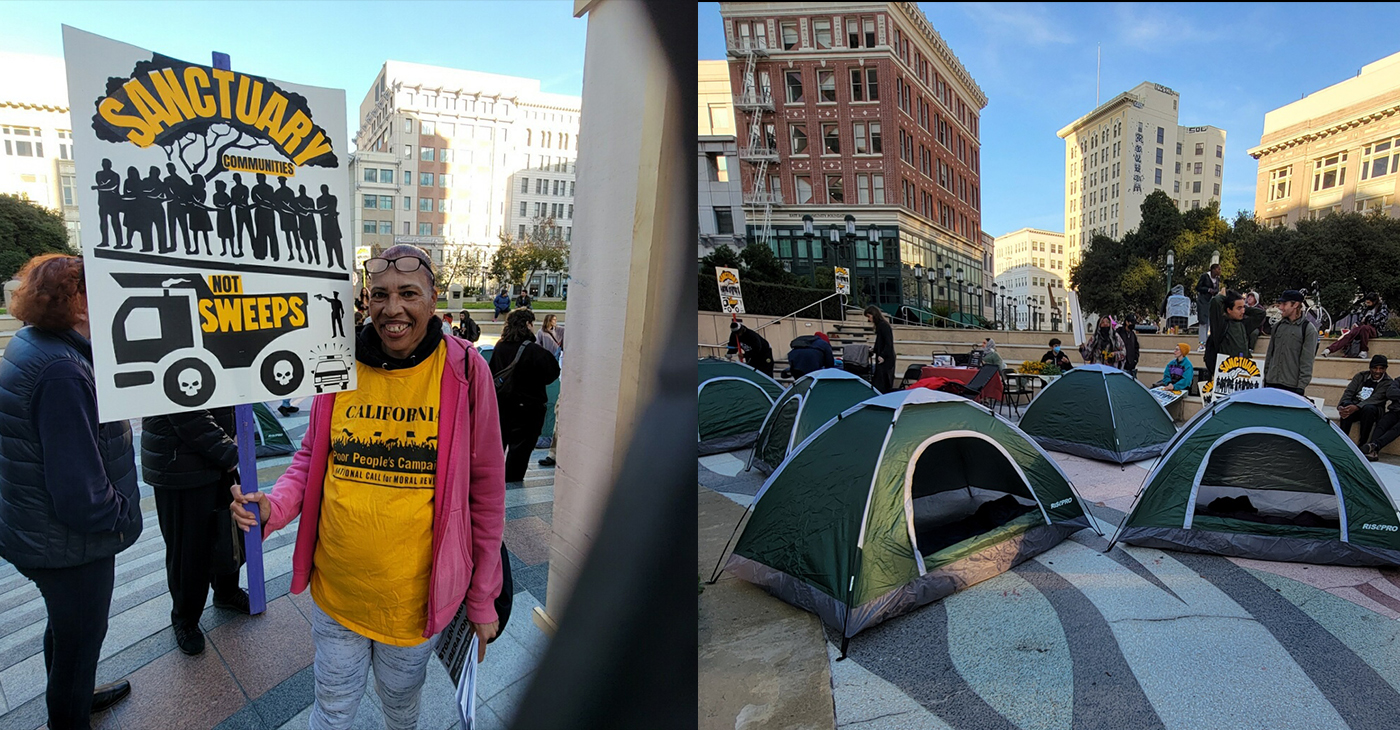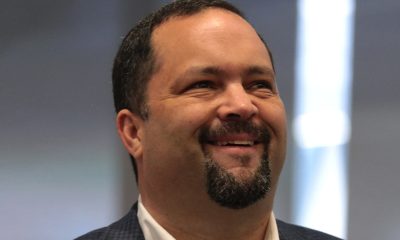Politics
Trade Offers Contrast Between Obama, Senate Democrats

In this Feb. 24, 2015 file photo, Sen. Elizabeth Warren, D-Mass. is seen on Capitol Hill in Washington. Senate leaders said Tuesday that Democrats have enough votes to block action on President Barack Obama’s trade initiatives unless the parties can work out disagreements on how to package various bills. (AP Photo/Susan Walsh, File)
ERICA WERNER, Associated Press
WASHINGTON (AP) — Senators of both parties worked Wednesday to revive trade legislation that’s a top priority for President Barack Obama, a day after Obama’s fellow Democrats repudiated him nearly unanimously on the issue.
Despite intense lobbying by Obama, every Democratic senator except one, Delaware’s Tom Carper, voted on Tuesday against moving forward on the legislation to award the president “fast track” authority to negotiate trade deals that can pass Congress without being amended. The vote failed 52-45, falling eight short of the 60 votes needed and dealing a stinging setback to the centerpiece of Obama’s second-term economic agenda, his hopes for a landmark pact with Asian nations.
The administration moved quickly to resurrect the legislation, summoning key Democrats to the White House after the vote to discuss possible strategies. Democrats said they had agreed to drop a contentious provision aimed at cracking down on countries that manipulate their currency, and Republicans were weighing the offer Wednesday.
“Look, we want to have a serious discussion. We want to actually get a good policy outcome. That’s always been our goal,” Senate Majority Leader Mitch McConell, R-Ky., said in a floor speech Wednesday. “I hope more will now join us to allow debate on the trade discussion our constituents deserve.”
Senate Minority Leader Harry Reid, D-Nev., appeared on the floor a few minutes after McConnell to say: “We have put a reasonable offer on the table for Senate Republicans to accept. All the Republican leader needs to do is say ‘yes’ and we can open debate on these trade bills.”
In the House, which is waiting for the Senate to move first on trade, Speaker John Boehner, R-Ohio, told reporters: “At the end of the day I think there’s a majority in both the House and the Senate for giving the president” the authority he is seeking to conclude trade deals.
The outcome of Tuesday’s Senate vote stunned the Capitol and highlighted Democratic divisions on trade heading into a presidential election year with control of the Senate at stake. Obama says it’s essential for U.S. goods and services to have easier access to other countries in a globalizing economy, while many Democrats and the labor unions that back them still feel the pain of job losses they blame on earlier trade deals and fear more could be yet to come.
The vote also laid bare the strained relations between Obama and Democrats on Capitol Hill, who have spent years complaining of neglect by a president who tends grudgingly, if at all, to the relationship-building aspects of politics.
The president’s tough sell on the trade legislation included Oval Office meetings, flights on Air Force One, promises of political support and concerted outreach by officials from Vice President Joe Biden on down. Obama mounted a public relations campaign to exert pressure, attacking his Democratic opponents as “wrong” in interviews and speeches, and even directly engaging liberal standard-bearer Sen. Elizabeth Warren of Massachusetts, dismissing her over the weekend as “a politician like everybody else.”
None of it worked. And for a president grasping for a final legacy achievement in the waning years of his administration, with Congress fully controlled by the opposition party, his inability to gather more than a sole Democratic supporter to move forward stood as an embarrassing rebuke.
“It is the president’s party,” said GOP Sen. Orrin Hatch of Utah. “It’s amazing to me that they would do this to the president on a bill of this magnitude.”
The White House downplayed the turmoil.
“It is not unprecedented, to say the least, for the United States Senate to encounter procedural snafus,” Press Secretary Josh Earnest said ahead of the vote. “I would urge you to withhold judgment about the president’s persuasion ability until we’ve had an opportunity to try to advance this piece of legislation through the Senate.”
There are a half-dozen or more Democrats who are prepared to support the trade legislation, but the issue got caught in a procedural thicket in recent days as Democrats claimed Republicans had agreed to package several related trade measures together, including the currency piece and other worker protections. Republicans insisted there’d been no such deal, and Democrats privately grumbled Tuesday that the White House should have gotten involved in sorting out the mess but refused to, believing enough Democratic supporters could be picked off.
Several Democrats also complained about Obama’s attacks on members of his own party and his criticism of Warren. Sen. Sherrod Brown of Ohio, a strong opponent on trade, called it “disrespectful.”
For others, Obama’s courtship, coming without a deep reservoir of support to build on, had simply failed to persuade.
Sen. Chris Coons of Delaware, who was elected in 2010, said he had never set foot in the Oval Office as a senator before he and other lawmakers met with Obama there last week on trade.
“Any time an administration is seeking to advance its objectives,” Coons said, “broad and deep relationships are helpful.”
___
Associated Press writers Charles Babington and David Espo contributed to this report.
Copyright 2015 The Associated Press. All rights reserved. This material may not be published, broadcast, rewritten or redistributed.
Alameda County
Last City Council Meeting of the Year Ends on Sour Note with Big Budget Cuts
In a five to one vote, with Councilmembers Carroll Fife and Janani Ramachandran excused, the council passed a plan aimed at balancing the $130 million deficit the city is facing. Noel Gallo voted against the plan, previously citing concerns over public safety cuts, while Nikki Fortunato-Bas, Treva Reid, Rebecca Kaplan, Kevin Jenkins, and Dan Kalb voted in agreement with the plan.

By Magaly Muñoz
In the last lengthy Tuesday meeting of the Oakland City Council for 2024, residents expressed strong opposition to the much needed budget cuts before a change in leadership was finalized with the certification of election results.
In a five to one vote, with Councilmembers Carroll Fife and Janani Ramachandran excused, the council passed a plan aimed at balancing the $130 million deficit the city is facing. Noel Gallo voted against the plan, previously citing concerns over public safety cuts, while Nikki Fortunato-Bas, Treva Reid, Rebecca Kaplan, Kevin Jenkins, and Dan Kalb voted in agreement with the plan.
Oakland police and fire departments, the ambassador program, and city arts and culture will all see significant cuts over the course of two phases.
Phase 1 will eliminate two police academies, brown out two fire stations, eliminate the ambassador program, and reduce police overtime by nearly $25 million. These, with several other cuts across departments, aim to save the city $60 million. In addition, the council simultaneously approved to transfer restricted funds into its general purpose fund, amounting to over $40 million.
Phase 2 includes additional fire station brownouts and the elimination of 91 jobs, aiming to recover almost $16 million in order to balance the rest of the budget.
Several organizations and residents spoke out at the meeting in hopes of swaying the council to not make cuts to their programs.
East Oakland Senior Center volunteers and members, and homeless advocates, filled the plaza just outside of City Hall with rallies to show their disapproval of the new budget plan. Senior residents told the council to “remember that you’ll get old too” and that disturbing their resources will only bring problems for an already struggling community.
While city staff announced that there would not be complete cuts to senior center facilities, there would be significant reductions to staff and possibly inter-program services down the line.
Exiting council member and interim mayor Bas told the public that she is still hopeful that the one-time $125 million Coliseum sale deal will proceed in the near future so that the city would not have to continue with drastic cuts. The deal was intended to save the city for fiscal year 2024-25, but a hold up at the county level has paused any progress and therefore millions of dollars in funds Oakland desperately needs.
The Coliseum sale has been a contentious one. Residents and city leaders were originally against using the deal as a way to balance the budget, citing doubts about the sellers, the African American Sports and Entertainment Group’s (AASEG), ability to complete the deal. Council members Reid, Ramachandran, and Gallo have called several emergency meetings to understand where the first installments of the sale are, with little to no answers.
Bas added that as the new Alameda County Supervisor for D5, a position she starts in a few weeks, she will do everything in her power to push the Coliseum sale along.
The city is also considering a sales tax measure to put on the special election ballot on April 15, 2025, which will also serve as an election to fill the now vacant D2 and mayor positions. The tax increase would raise approximately $29 million annually for Oakland, allowing the city to gain much-needed revenue for the next two-year budget.
The council will discuss the possible sales tax measure on January 9.
Activism
Protesters Gather in Oakland, Other City Halls, to Halt Encampment Sweeps
The coordinated protests on Tuesday in San Francisco, Oakland, Vallejo, Fresno, Los Angeles and Seattle, were hosted by Poor Magazine and Wood Street Commons, calling on cities to halt the sweeps and focus instead on building more housing.

By Post Staff
Houseless rights advocates gathered in Oakland, San Francisco, Los Angeles, and other city halls across California and Washington state this week protesting increased sweeps that followed a U.S. Supreme Court decision over the summer.
The coordinated protests on Tuesday in San Francisco, Oakland, Vallejo, Fresno, Los Angeles and Seattle, were hosted by Poor Magazine and Wood Street Commons, calling on cities to halt the sweeps and focus instead on building more housing.
“What we’re dealing with right now is a way to criminalize people who are dealing with poverty, who are not able to afford rent,” said rights advocate Junebug Kealoh, outside San Francisco City Hall.
“When someone is constantly swept, they are just shuffled and things get taken — it’s hard to stay on top of anything,” said Kealoh.
Local houseless advocates include Victoria King, who is a member of the coordinating committee of the California Poor People’s Campaign. She and Dr. Monica Cross co-chair the Laney Poor People’s Campaign.
The demonstrations came after a June Supreme Court ruling expanded local governments’ authority to fine and jail people for sleeping outside, even if no shelter is available. Gov. Gavin Newsom in California followed up with an order directing state agencies to crack down on encampments and urging local governments to do the same.
Fresno, Berkeley and a host of other cities implemented new rules, making it easier for local governments to clear sidewalk camps. In other cities, such as San Francisco, officials more aggressively enforced anti-camping laws already on the books.
Activism
Celebrating East Bay Leaders Keith Carson and Federal Glover at Geoffrey’s Inner Circle
Several leaders were in attendance including fellow Alameda Supervisors Elisa Marquez and Lena Tam, Superior Court judge-elect Terry Wiley, and African American Sports and Entertainment Group’s founder Ray Bobbitt, along with many other guests.

By Magaly Muñoz
After decades of public service in the East Bay, community members and leaders came together to celebrate Alameda County Supervisor Keith Carson and Contra Costa Supervisor Federal Glover at Geoffrey’s Inner Circle Thursday afternoon.
Several leaders were in attendance including fellow Alameda Supervisors Elisa Marquez and Lena Tam, Superior Court judge-elect Terry Wiley, and African American Sports and Entertainment Group’s founder Ray Bobbitt, along with many other guests.
First elected in 1992, Carson has served District 5 for 24 years and announced his decision to step away from his seat earlier this year, just before the deadline to submit new candidate applications.
He dedicated his long career to bringing access to health care, addressing homelessness, lowering crime, improving business retention, and growing job opportunities in Alameda County.
Glover began his tenure as Contra Costa Supervisor in 2000 and previously served as mayor of Pittsburg in 1998. During his time as Supervisor, he supported initiatives on public transportation, created committees for public safety, and supported task forces on health.
“These two distinguished leaders have dedicated their lives to improving the lives of so many people across Alameda and Contra Costa (counties). Their work has touched every corner of the East Bay,” Alameda County Supervisor and President Nate Miley said.
Leaders from both counties spoke on the supervisors’ legacies and their dedicated years of service.
Contra Costa Supervisor John Gioia said that Glover was the type of person that grew with each challenge that crossed him, especially after he had major surgery in 2020. But Gioia said that the treatment did not deter Glover.
“He’s had tougher races for reelection than any member of our board that I can recall, and he’s always come back stronger than before,” Gioia said.
Sharing a county border, Gioia complimented Carson on his ability to sway leaders from both sides of the political aisle to listen on the issues affecting locals and residents across the nation.
Shannell Scales Preston, who is taking over Glover’s D5 seat in 2025, told event attendees that Glover was a mentor to her for many years. He often would call Preston after Pittsburg City Council meetings with remarks about her performance and how well she spoke up on certain issues.
With Glover spending years as the only Black elected official in local government, Preston would ask him how he managed to not feel lonely about the job. She then congratulated him on being the only supervisor in Contra Costa to have all Black mayors under his district in 2023.
Preston said he’s been a leader to many diverse groups and his tenure has seen leaders of all backgrounds, but particularly paving the way for Black leaders in predominantly white areas.
Miley, who has shared his entire 24-year tenure on the Alameda Board with Carson, tearfully wished the exiting supervisor luck and said he would miss him dearly.
Carson said that as we embark on a “dark time” for everyone across the nation and worldwide in 2025, it’s important to continue communicating and working with groups from all backgrounds because that is the only way things will get done.
“There have been many lonely nights, but then the sun comes out in the morning when you continue to think, ‘I can make a difference,’” Carson said.
-

 California Black Media4 weeks ago
California Black Media4 weeks agoCalifornia to Offer $43.7 Million in Federal Grants to Combat Hate Crimes
-

 Black History4 weeks ago
Black History4 weeks agoEmeline King: A Trailblazer in the Automotive Industry
-

 California Black Media4 weeks ago
California Black Media4 weeks agoGov. Newsom Goes to Washington to Advocate for California Priorities
-

 California Black Media4 weeks ago
California Black Media4 weeks agoCalifornia Department of Aging Offers Free Resources for Family Caregivers in November
-

 Activism3 weeks ago
Activism3 weeks agoOakland Post: Week of November 27 – December 3, 2024
-

 Activism4 weeks ago
Activism4 weeks agoOCCUR Hosts “Faith Forward” Conference in Oakland
-

 Activism4 weeks ago
Activism4 weeks agoRichmond Seniors Still Having a Ball After 25 Years
-

 Activism2 weeks ago
Activism2 weeks agoButler, Lee Celebrate Passage of Bill to Honor Congresswoman Shirley Chisholm with Congressional Gold Medal
























































